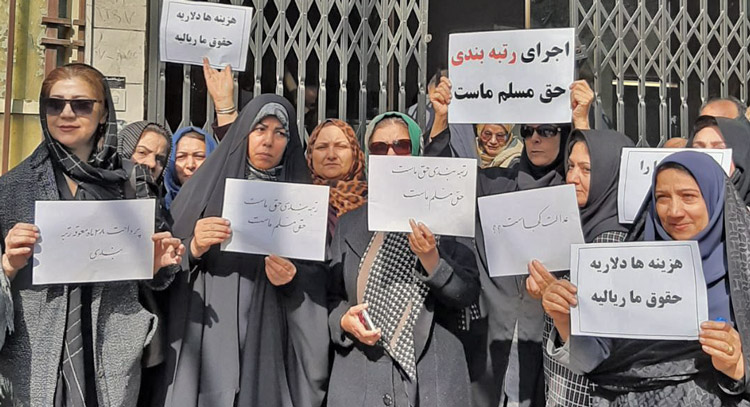Dozens of family members of prisoners on death row marched down a busy street in Tehran to the Majlis, the Iranian parliament building, Oct. 29, calling for the abolition of the death penalty. “No to executions” and “We are not afraid,” they chanted.
The march coincided with the 40th consecutive “no execution” Tuesday — a weekly one-day hunger strike by prisoners across the country. The number of actions jumped from 14 prisons in August to 24 in October.
The protests against the death penalty take place amid growing opposition by working people to the reactionary bourgeois regime’s threats to wipe out Israel and the Jews. Almost every day there are actions by workers demanding higher wages to match soaring prices, despite the regime’s warnings this undercuts their war effort. Nurses are planning nationwide protests Nov. 7. One of their slogans is, “Enough warmongering. Our tables are empty.”
At least 811 prisoners were executed between October 2023 and October 2024 — nearly triple the number executed in 2021. Roughly half were for drug offenses and a third on accusations of murder. A smaller number are opponents of the Islamist regime, accused of “armed rebellion,” “waging war against God” or “corruption on earth.”
According to a statement being circulated by the Coordinating Council of the Teachers Unions and other independent unions that have been campaigning against the death penalty, 150 people were executed in October alone. “That means seven executions every day.”
The death penalty is used disproportionately against Iran’s oppressed nationalities, including Kurds, Arabs and Azerbaijanis. The hardest hit are Baluch. Less than 6% of Iran’s population, they account for 20% of all executions.
Opponents of the death penalty frequently emphasize that “execution is the most important tool of political repression in the hands of the rulers.” An Oct. 30 statement noted, “Execution is a violation of human rights not only for political prisoners, but for all ordinary prisoners as well.”
At a retiree protest in Khorasan province Oct. 31, participants combined demands for higher pensions — “our pensions are in rials, our costs are in dollars” — with a call to end executions and torture.
They called for freedom for Ismail Gerami, a retired electrician and leader of the retirees, who was sent back to prison for an additional one-year sentence, and Sharifeh Mohammadi, a former member of the Coordinating Committee to Help Create Labor Organizations, who faces a death sentence.


